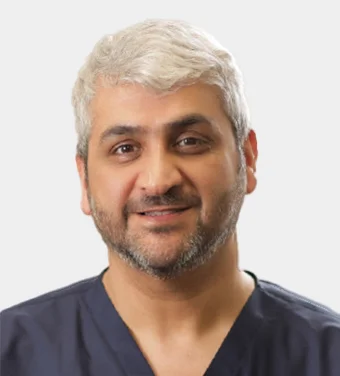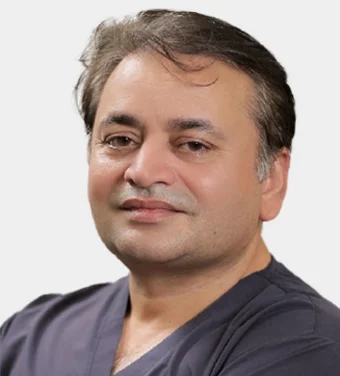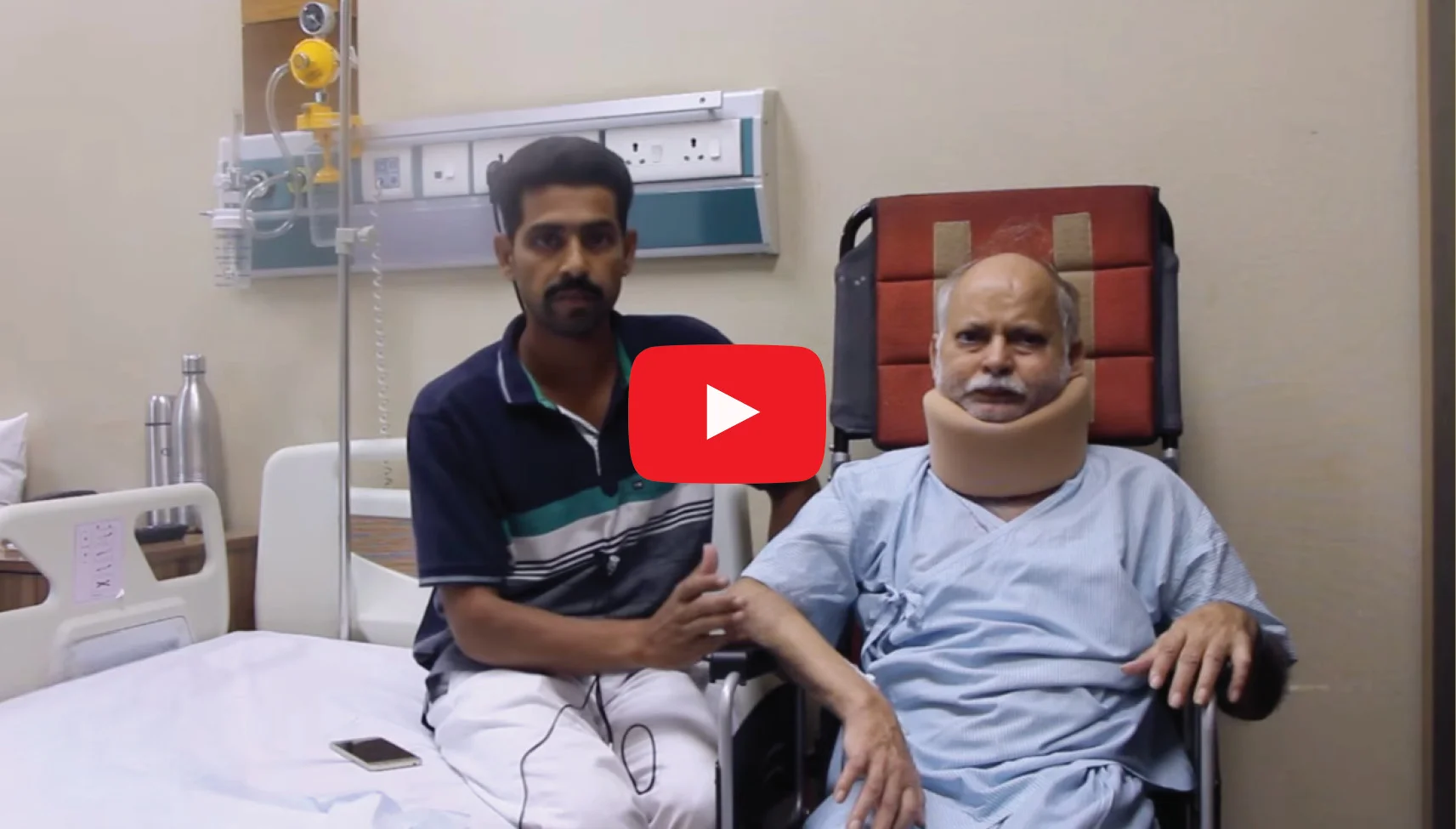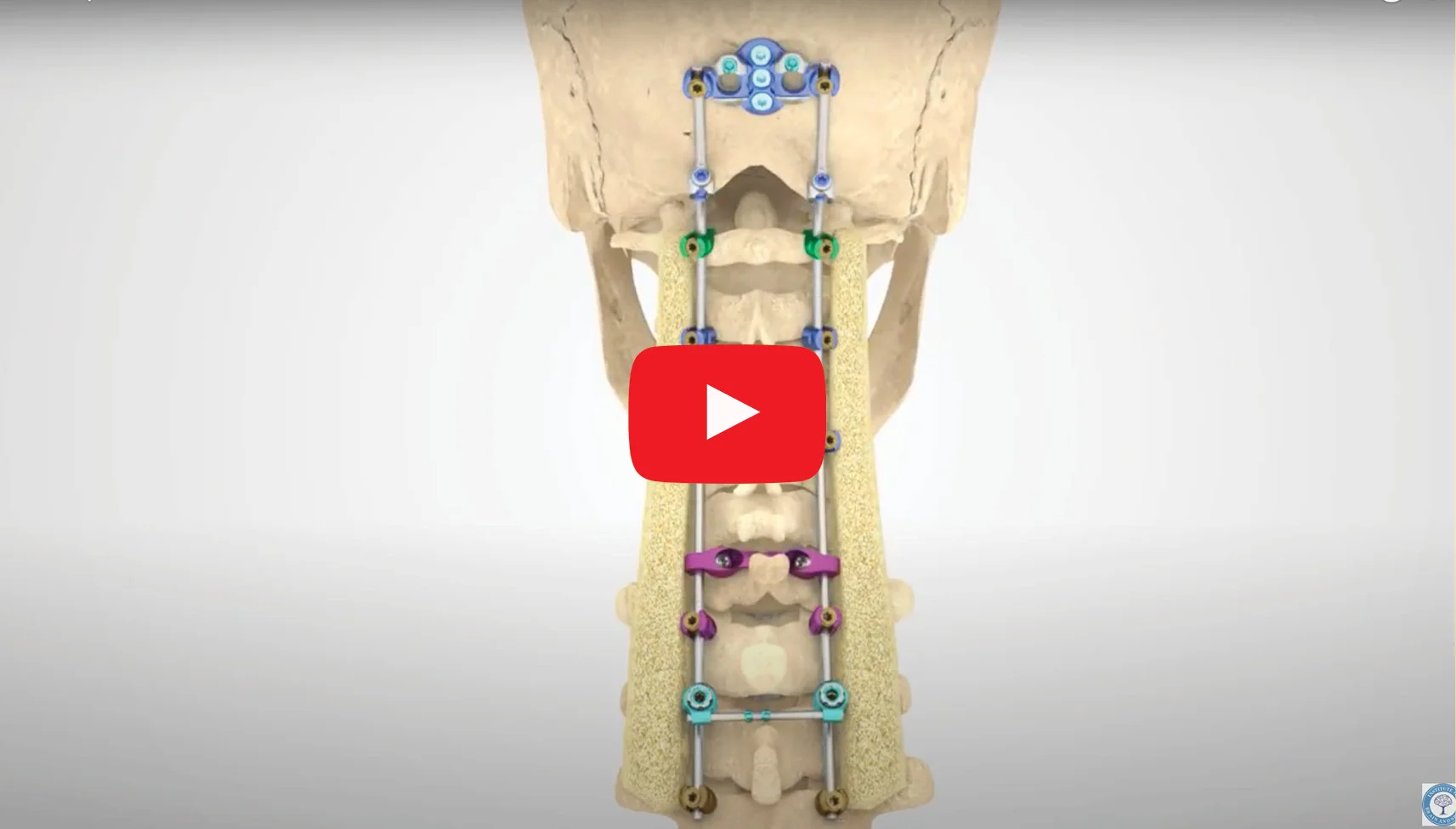
IBS Hospital offers state-of-the-art posterior cervical fixation procedures for spine stability. Experience relief from neck pain and regain your confidence in everyday activities. Discover the road to a more comfortable life.
What is Posterior Cervical Fixation?
Posterior Cervical Fixation is performed to address a multitude of indications, including degenerative disc disease, dislocation, fractures, instability, or soft disc herniation.
Following the initial physical assessment, you will undergo medical investigations on an outpatient basis to evaluate your spinal problem. Once investigations and medical assessment are completed, the surgical procedure will be planned, and you will be advised to be admitted on the day of surgery.
In this procedure, the patient lies face down, and incisions are made down the middle of the back of the neck. Retractors are used to separate and hold the neck muscles. If direct spinal cord or nerve root decompression is necessary, some removal of impinging bone may be performed (laminectomy or facetectomy). Instrumentation, including plates, rods, and screws, may be used. The muscles and tissues are then repositioned, and the skin is stitched together.
What is the process / patient journey for Posterior Cervical Fixation surgery at IBS Hospital?
Day 1:
You are admitted to the hospital. The procedure is explained in detail to the patient or their relative, and consent is obtained. A pre-anesthesia checkup (PAC) is performed. Once cleared, the patient is transferred to the operating room (OT) for the procedure. After the procedure, the patient is moved to the recovery area, and once stable, they are transferred to their respective room. Some discomfort or pain may occur, for which you will be provided with analgesics.
Day 2:
You will be observed in your room, and the discharge process will be initiated. You or your relative will be informed about the discharge medication and follow-up instructions. The patient is then discharged.
What is the post-surgery follow-up and recovery timeline?
Additionally, you may be advised to see the surgeon after a week for stitch removal. Follow-up is also important to assess the progress of healing. Initially, some soreness and pain may be experienced, depending on the type of surgery performed. The presence of bruising in the area is not abnormal.
Our team of experts that make it possible
Meet the team of highly specialised and experienced neurosurgeons, neurologists, orthopedicians, and other experts in the field of neurology and spine care. Our team is dedicated to providing personalised and compassionate care to each patient, with the goal of helping them achieve the best possible outcomes.

Dr. Sachin Kandhari
Senior Neurosurgeon

Dr. Dewaker Sharma
Senior Neurosurgeon

Dr. Vikas Gupta
Senior Neurosurgeon

Dr. Anup Gogoi
Senior Neurosurgeon

Dr. Gaurav Sharma
Senior Sports Physiotherapist

Dr. Sachin Samuel
Senior Neuro Physiotherapist

Dr Ankush Arora
Anaesthetist

Dr. Ankur Dhandha
Anaesthetist

Dr Amarjyoti Yadav
Anaesthetist
IBS Hospital Empowers Your Treatment with Cutting-edge Technology
We continuously incorporate cutting-edge technologies from around the world into our offerings, such as a surgical system that allows for precise and confident complex procedures. We use magnetic stimulation to treat certain neurological conditions and create personalised brain maps for tailored treatment plans. Nerve monitoring during surgeries ensures the nervous system is not compromised, and a robotic exoskeleton aids in mobility issues. Our goal at IBS Hospital is to provide the best care possible, utilising the latest and most innovative technologies available.





